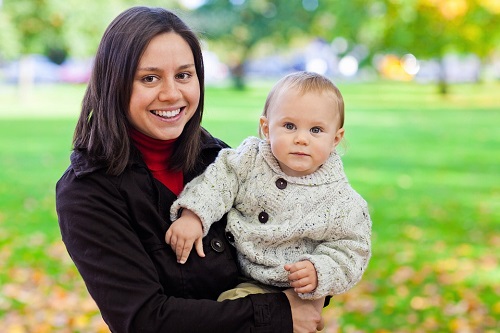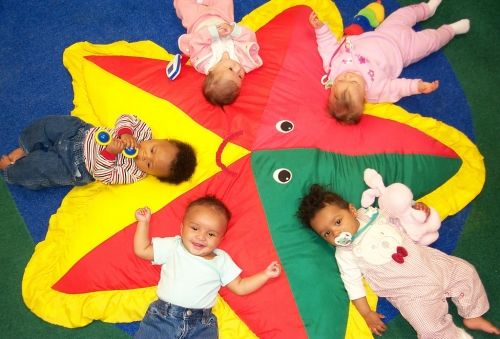With family far away, finding childcare can be an added expense for international parents new to the Netherlands.
Below are six common forms of childcare here and what you can expect from each service.
Au Pair
An au pair is a young adult aged between 18 and 30 who offers childcare services in return for board and lodgings and an allowance of €300-€400 per month. You may also be asked to contribute around €300 per year towards language lessons as this is an entitlement of their stay.Au pairs must be single and must not have children of their own. They are normally in the Netherlands to study or to learn about the culture and language. Their services are meant to be mutually beneficial and cannot take the place of a full-time nanny. They must meet regulations relating to their stay in the Netherlands.
You are legally obliged to hire your au pair through an agency. They will screen the applicants for you and will help you find a good match for your family. The agency will shortlist suitable candidates for you to meet and interview. A list of recognised au pair agencies can be found here.
Host families must demonstrate that they have a sufficient income to support the au pair. For cohabiting couples, this is 1.5 times the minimum wage. The income requirements are less for single parents. You need to have a spare room and will need to provide food and some basic supplies. Some hosts also help their au pair with travel costs.
You must draw up a schedule of duties for your au pair. They are entitled to two days off per week and two weeks per year of holiday. The working week is limited to 30 hours, with no working day longer than eight hours. You can ask the au pair to undertake light housework but this should be agreed beforehand.
While it is extremely handy having childcare on site – and the children will hopefully form a close bond with their au pair – having a newcomer living as part of your family may take some getting used to. You will also need to pay agency fees and entry and residence procedure costs.
Babysitter
The hiring of casual babysitting is not tax-deductible but it is a handy way to organise an occasional child-free few hours.
Local Facebook parenting groups are a great way to get babysitter recommendations. Expect to pay €5-€10 euros per hour, or more if you have several children. Rates in large cities tend to be slightly higher.
There are many agencies in the Netherlands that can help you find a babysitter. There is normally a small enrolment fee and sometimes a brief intake meeting. Here are a few to get you started:
• Babysitters Club is available in Amsterdam, The Hague and Utrecht. All babysitters are students and are chosen by the agency and have signed up to their terms and conditions. Babysitters charge €5-€10. The agency costs €250 to join but offers a 2-week trial period.
• Charly Cares serves Amsterdam, The Hague and Utrecht and screens all its babysitters. You can use their app to browse the profiles, ratings and fees of individual babysitters and select and book your favourite.
• Holiday Sitters is an Amsterdam-based service with no finder’s fee. Babysitters cost €15 per hour for up to three children.
• Oppas Madelief was founded by twin sisters Jasmijn and Lyla from Delft and now operates in 15 cities. You pay a €15 one-off arrangement fee or take out a monthly subscription. Sitters charge €4 – €10 euros per hour. You can also arrange for a babysitter to collect your child from school.
• Oudermatch is an online, nation-wide portal for finding a babysitter. Users pay a small monthly fee to access the database.
BSO
Buitenschoolseopvang is a general term for childcare provided for children aged 4-12 years, in association with their school, outside the regular school hours.
Some centres offer childcare from around 7:30, before school begins. This is called voorschoolseopfang or VSO.
After-school childcare is called naschoolseopvang or NSO and runs until around 18:00. Children are provided with a snack and drink after school.
The BSO also provide childcare during the school holidays and often take children to theme parks, paddling pools or playgrounds during this period. In the holidays, lunches are usually arranged by the BSO, making it particularly convenient for parents.
The BSO organise games, dance, crafting and sport for their charges. Some organisations team up with other service providers, such as sports, art or music clubs, to increase the range of activities they can offer the children.
Information about the BSO can be found on your school’s website. Parents sign up for the days and times that they would like. BSO is provided on site at your child’s school, without the need for an extra pick-up, and is therefore an efficient way to arrange childcare. The familiar setting, and the fact that your child will know many of the other children there, make it an easy transition.
The option to swap days or sign up for extra days if the need arises allows for some flexibility. Expect to pay around €6-€7 per hour.
Gastouder
A gastouder (childminder) normally takes cares of your child in their own home, which must meet inspection requirements for this purpose.
The maximum group size is 6 children, including any of the gastouder’s own (if under 10). If the children in their care are all under four, then the group size is limited to five. This may be reduced to just four children if they are all under two years of age. The gastouder may care for no more than two babies under 12 months.
There are several advantages of this type of childcare:
– The home setting is more intimate than a large crèche and will feel less like an institution and more like a home.
– With just one carer, your child can build up a more meaningful relationship with the adult and may find it more reassuring.
– Your child has the opportunity to socialise with other children, including (often) the childminder’s own.
– If your child is part of a small group, they are likely to benefit from outings with the childminder.
– The gastouder is less expensive than some childcare options, particularly if you have just one child.

The disadvantages are:
– It can be hard to find a gastouder with availability.
– If the gastouder is ill or on holiday, you may need to find emergency childcare.
Expect to pay around €5-€6 per hour, per child. If you want the gastouder to care for one or more of your children in your own home, you will normally pay at least €11 per hour.
Before hiring a gasthouder, check that they are listed in the national childcare register and that they have the requisite qualifications.
All gastouders must also have a first-aid certificate and a certificate demonstrating child protection clearance (verklaring omtrent het gedrag). Gastouder services are eligible for childcare allowance (kinderopvangtoeslag).
The easiest way to find a gastouder in your area is via the gastouder database.
Kinderdagverblijf
Kinderdagverblijf is a crèche or daycare centre for children and babies aged from six weeks to four years. Your child may stay a maximum of ten hours a day and is looked after in a group environment by a team of qualified carers. Centres are normally open 8:00-18:00 and tend to close at weekends. A list of registered centres can be found here, along with their inspection reports.
Babies are cared for in groups of up to twelve and children in groups of no more than sixteen. There is at least one carer for every eight children. Expect to pay around €7 per hour.
Babies and children will eat at the centre and there are cots and beds for naptimes. Centres are equipped with toys, games and art equipment to entertain the children. Most will take children out to playgrounds and parks when the weather is fine or make use of their own outdoor facilities.
Kinderdagverblijf is a great way for your child to meet other children their age, develop their social skills, and gain independence. There can be long waiting lists for places, so it is advisable to register your child as early as possible.
Most centres allow a phased start for newcomers so that they can adjust to the new environment. During this period, they will only attend for a couple of hours and you will be allowed to stay with them.
Oppas
If you need to streamline your childcare and reduce the number of drop-offs, hiring an oppas (nanny) who comes to your home may be a great solution. As the oppas only has your child/children to look after, they can take care of school pick-up, clubs and playdates too. You can also arrange for your oppas to help out with some light chores and cook for the children.
Your child will be cared for at home where they feel most secure and will build a close relationship with the nanny.
If your child is ill, the crèche is unlikely to admit them, but with a nanny you still have childcare. If you have more than one child, a nanny may be a cheaper option than a day care centre too.
One downside is that it can be hard to find a nanny that is the right fit for your family. Also, the finding fee can be very expensive, with some agencies in the Netherlands charging as much as €1000.
Be aware that when you hire a nanny, you become an employer and are therefore subject to Dutch labour laws.
Nanny for Expats and Compananny both have websites in English and are used to helping international residents.
Have you lived in the Netherlands? Do you have any childcare tips for other expats? Share your thoughts in the comments!

